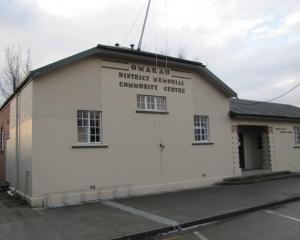
Farmer Gary Kelliher, of Alexandra, was a regional councillor from 2013 to 2016, but has lost two elections since then.
In the 2016 election he was edged out by Michael Laws by five votes in a recount.
The next year he stood in a by-election in June 2017 triggered by the death of Maggie Lawton, but lost to her daughter Ella.
If elected he would "put everything" into the role, he said.
"It is quite daunting when it's the third crack. You put yourself out there every time you do this."
In recent years he has been vocal about the council's work with minimum flows as the spokesman for Manuherikia irrigators.
He believed his experience in the community, and as a councillor previously, could help the council with important work with water, pests and air quality, he said.
He had "real concerns" with the way the council was operating and how it dealt with communities.
"I think they're in a very precarious position with the loss of staff and new councillors coming in. That will make them vulnerable."
The best way to change this was from within, he said.
"You can be more effective around the council table rather than outside in the community. I think I'd be able to be effective almost immediately."
His work representing local irrigators could "help or hinder" him, he said.
"I feel like everything I'm doing is from a community-wide perspective. I am conscious that a lot of the time I have to be negative, which is the nature of the beast unfortunately."
The council needed stable and strong leadership as it would face "major challenges" in the next term.
He brought an experienced "Queenstown Lakes and Central Otago voice" to the table, he said.
"I will bring a balanced and knowledgeable voice to the table as we debate these issues, a voice that is much needed given the recent criticism the ORC has faced in dealing with them."
Comments
This demonstrates why the ORC has about zero accountability to Dunedin voters in providing public transport for Dunedin City - ORC's area and scope is so wide that there's no democratic link whatsoever between Dunedin residents who want a good public transport for the city and who gets elected and why - and why they stand in the first place. (Usually about water use and/or conservation.) The Constituency system doesn't help - it mostly disenfranchises like the old Ward system. The democratic principle is 'no taxation without representation'. This doesn't work for Dunedin residents in respect of public transport. Yes, there has been recent greater expenditure and considerable improvement but only because of law changes and NZ Transport Authority holding ORC's hand all the way through. It simply doesn't make sense that a city should not run its own public transport system.
Re the enclosed comment; The DCC (aka. the ratepayers) funds essentially every single bus trip, because everyone losses money, even the peak hour ones. This excludes the costs of chewing up our roads with mostly empty buses. We need smaller and fewer buses on the road until demand warrants it.
Dunedin ratepayers should not be stung by 2 incompetent organisations' rates.











